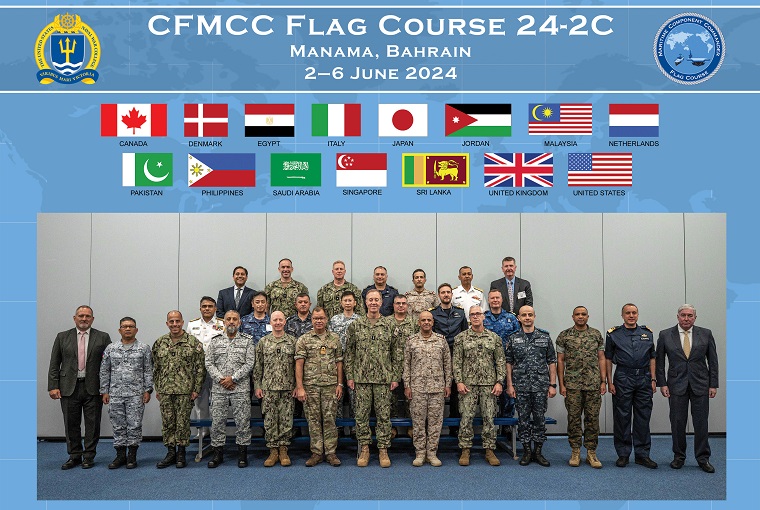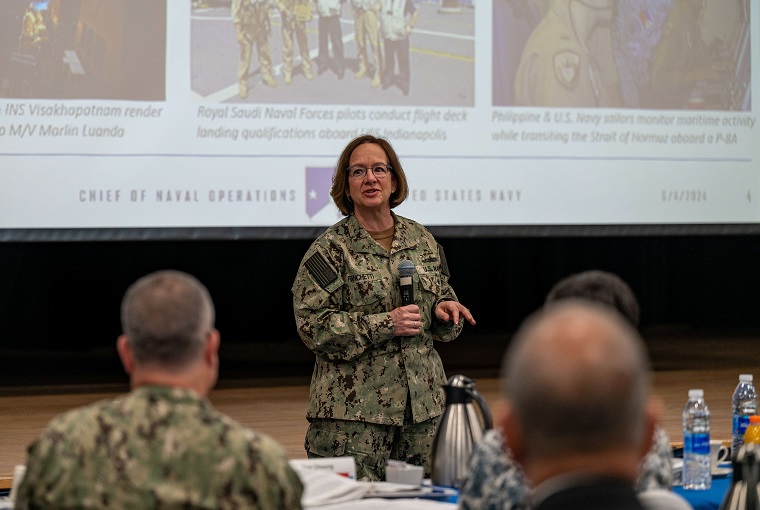U.S. Naval War College Completes Multinational Maritime Component Commander Course

NEWPORT, R.I. – The U.S. Naval War College's (NWC) College of Maritime Operational Warfare (CMOW) completed its Combined Force Maritime Component Commander (CFMCC) Flag Course 24-2C onboard Naval Support Activity (NSA) Bahrain, June 2-6.
A flag-level professional military education course, CFMCC was designed to give U.S. and partner nation officers a broad perspective of the operational level of war and to prepare them for regional leadership. The latest iteration of the course coincided with a visit to Bahrain by Chief of Naval Operations (CNO) Adm. Lisa Franchetti who gave her insights as a CFMCC alumna.

“Navies are always important, but our mission is more important than ever in this maritime century. Your presence here is a testament to the naval power that comes when we operate together as strong links in the maritime chain,” said Franchetti. “When I speak about my priority of warfighters, I am also talking about our Allies and partners. We deter together, we respond in crisis together, we provide peace and stability around the world together, and if we have to, we fight and win together. That's what navies do.”
CFMCC brought together 23 flag and general officers representing 15 countries to explore Combined Maritime Command and Control concepts and mechanisms. Participating countries included Canada, Denmark, Egypt, Italy, Japan, Jordan, Malaysia, Netherlands, Pakistan, Philippines, Saudi Arabia, Singapore, Sri Lanka, United Kingdom, and the United States.
CFMCC prepares current and future flag-level leaders by developing and deepening relationships centered on trust and confidence. Students examine current security challenges facing partner nations through regional frameworks.
"This course was tailored to focus on current regional challenges that are impacting the maritime domain, including freedom of navigation in the Red Sea,” said Sean P. Henseler, J.D., CFMCC flag course director and interim dean for CMOW. Henseler added that presentations by current key leaders at the operational level of war, combined with academic instruction and interactive discussion by NWC subject matter experts, resulted in a course that was well received by U.S. and partner nation students alike.
The one-week course is taught at the headquarters of a U.S. Navy numbered fleet three times yearly. CFMCC graduates gain the ability to effectively communicate and advance the understanding of security issues between participating nations.
NWC delivers excellence in education, research, and outreach, informing today’s decision-makers and educating tomorrow’s leaders. The college provides educational experiences and learning opportunities that develop students’ ability to anticipate and prepare strategically for the future, strengthen the foundations of peace, and create a decisive warfighting advantage.
